Google's mismanagement of the Android Market
Earlier this week, CNET ran an article critical of the permission model of the Android Market. Google’s response to the criticism was that “each Android app must get users’ permission to access sensitive information”. While this is technically true, one should not need a PhD in Computer Science to use a smartphone. How is a consumer supposed to know exactly what the permission “act as an account authenticator” means? The CNET opinion piece “Is Google far too much in love with engineering?” is quite relevant here.
Google does far too little curation of the Android Market, and it shows. Unlike Apple’s App Store, the Android Market has few high quality apps. A study by Larva Labs (the developers of the excellent Slidescreen app) estimates that Apple has paid out 50 times more money to developers than Google has. While the Android Market is available in 46 countries, developers can only offer paid apps in 13 countries (for instance, Canada has only had access to paid apps since March 2010). In addition, the price for foreign apps is not displayed in the user’s local currency and developers do not have the option of customizing pricing by country. To make matters worse, you can’t pay for foreign apps using your Amex card or carrier billing. There’s also no support for in-app payments and changelogs (to communicate app changes).
Below are just a few examples of what’s wrong with the Android Market. Those 144 spam ringtone apps (which are clearly infringing copyright) are currently cluttering the top ranks of the Multimedia category. I was not surprised to find that they were being monetized through Google Ads.
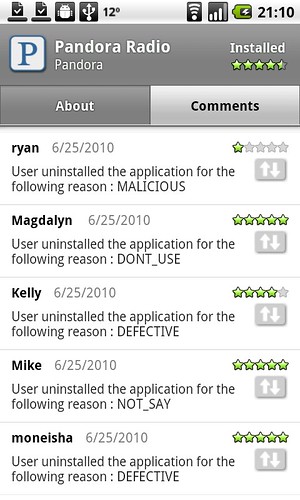
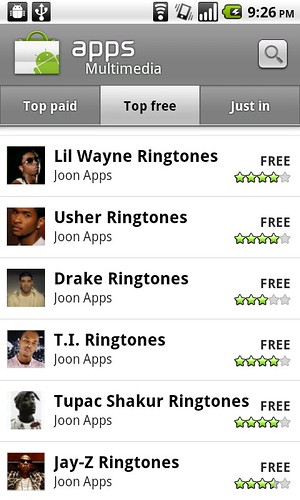

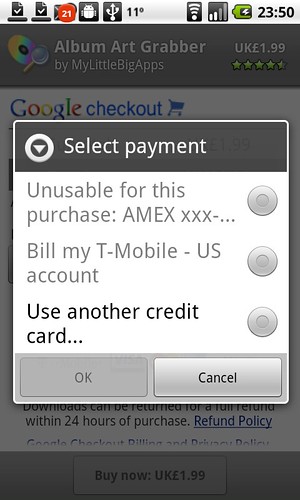
Trademark and copyright infringement is widespread in the Android Market:
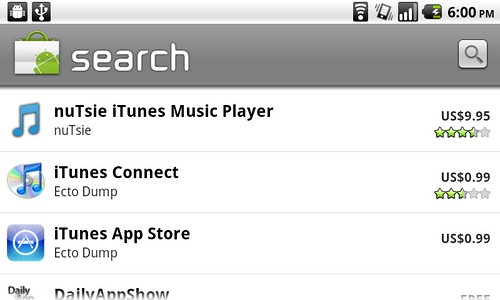
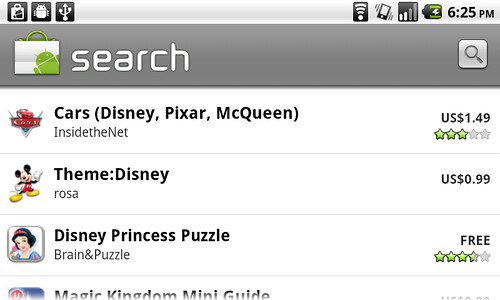
The music downloading app “Tunee” (one of many such apps) is one of the Top Free apps in the Multimedia category with more than 250k downloads. While some would dishonestly try to pretend that such apps are meant for downloading public domain classical music, the developers of Tunee are very clear about their intent. Their screenshot shows copyrighted music by the band Muse (Warner Music Group) being illegally downloaded.
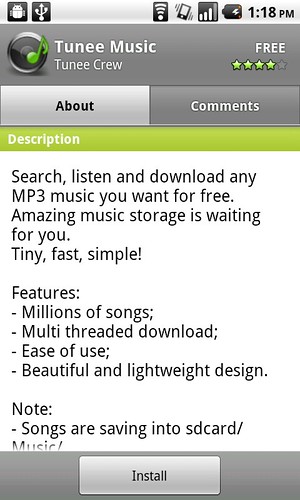
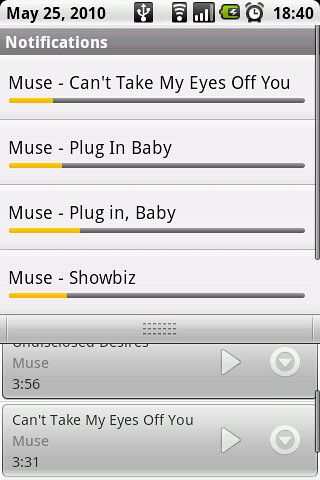
These apps are damaging to companies that are building legitimate Android music apps (e.g Rdio, Spotify and MOG), not to mention Amazon whose MP3 store comes bundled with most Android phones in the U.S. Is Google’s strategy to turn a blind eye to illegal music downloading until they launch their own music store?
Developers and users are getting fed up and it’s time for Google to clean up the house.